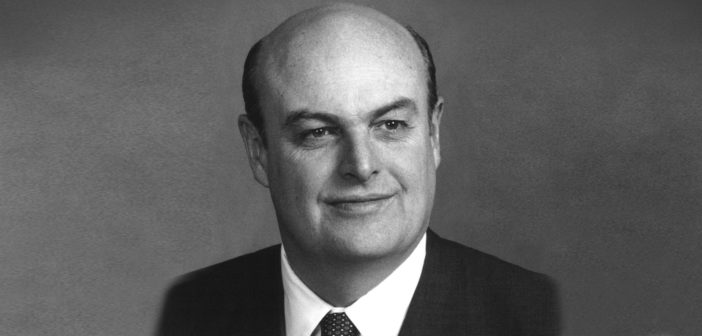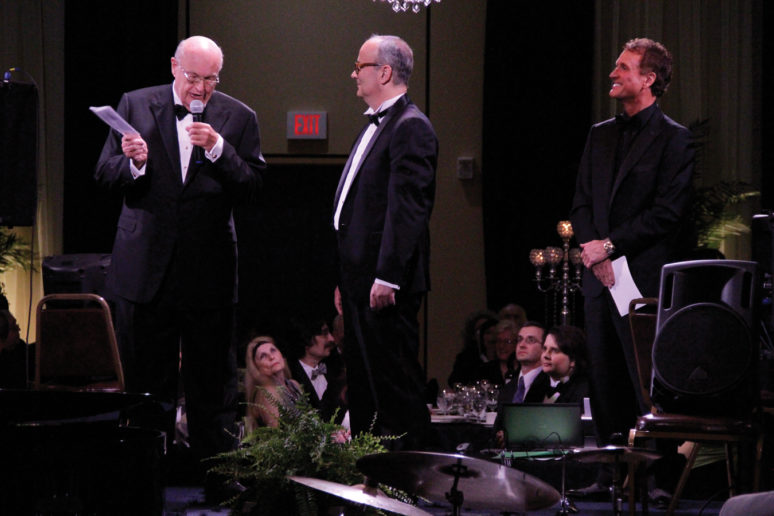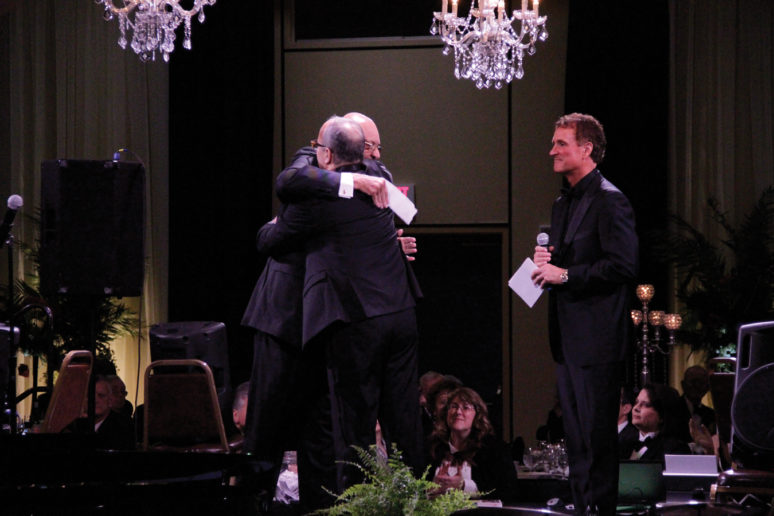One of the longest-serving leaders of a major philanthropy in the United States, William S. White passed away peacefully on October 9 at age 82. He held the position of CEO of the Charles Stewart Mott Foundation from 1979-2018 and continued to serve as chairman of the Foundation’s board of trustees until his passing on October 9, 2019.
My City Magazine is proud to share Mr. White’s story, his voluminous list of achievements, and heartfelt sentiments from his peers, former colleagues and family.
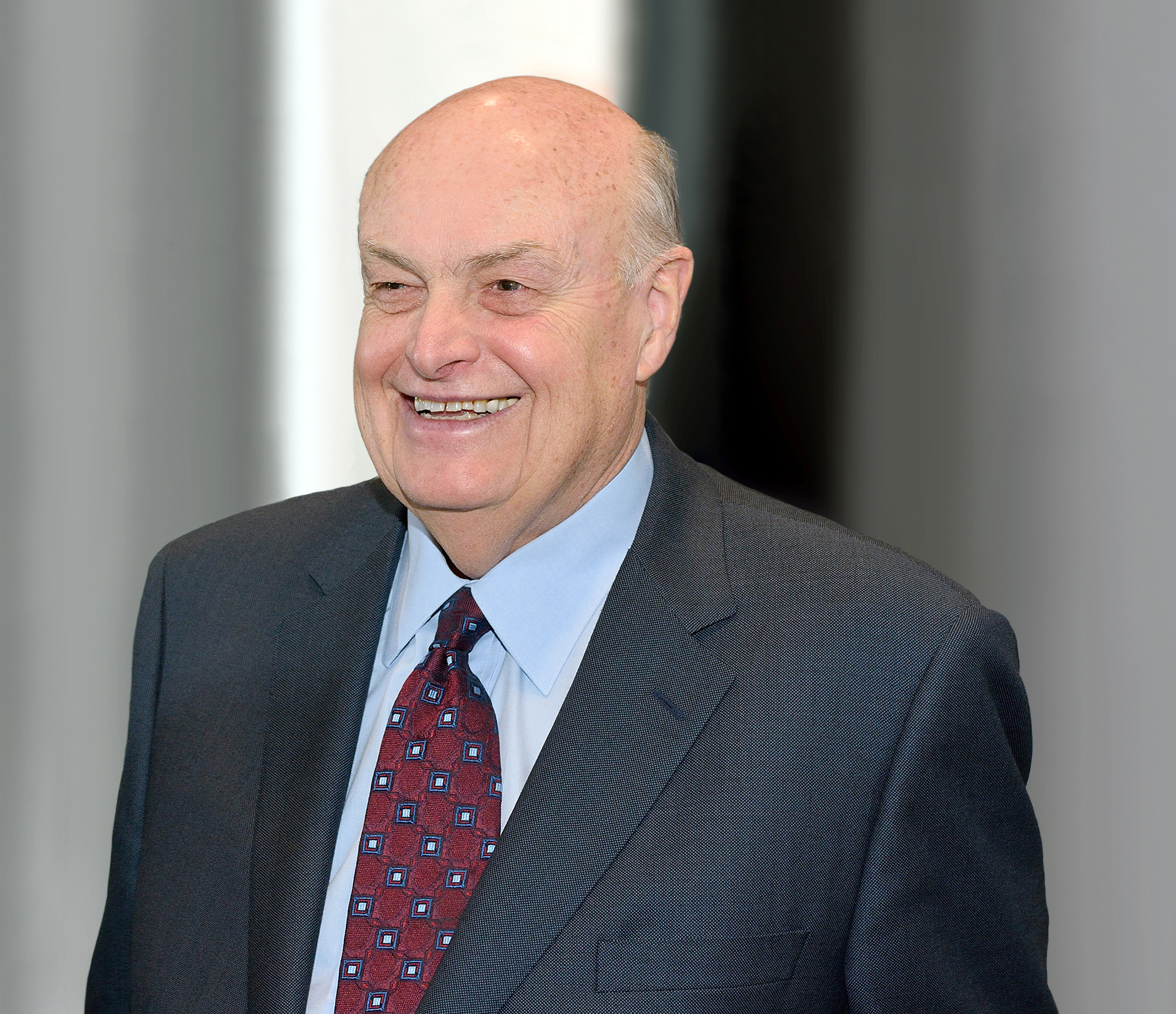
Born in Cincinnati, OH in 1937, he was the only child of Nathaniel Ridgway White, a business writer and editor for the Christian Science Monitor, and Mary Lowndes White, a civil engineer. He grew up in Westchester County, New York and Boston. After graduating with a Bachelor of Arts from Dartmouth University in 1959, he completed a Master of Business Administration at the university’s Tuck School of Business the following year. From 1960 to 1962, he served with the United States Army.
In 1961, White married Claire Mott, a granddaughter of industrialist, Charles Stewart Mott, who created the Foundation that bears his name. Eight years later, White’s father-in-law, C.S. Harding Mott, hired him as a consultant. In that role, White subsequently helped to reorganize and modernize the Foundation’s administrative, financial and grantmaking procedures.
His success in those efforts led to White being named vice president and secretary of the Foundation in 1971 and elected to its board of trustees. Over the coming years, he would be elected to the positions of president, chief administrative officer, CEO and the role he served until his last day: chairman of Mott’s board of trustees.
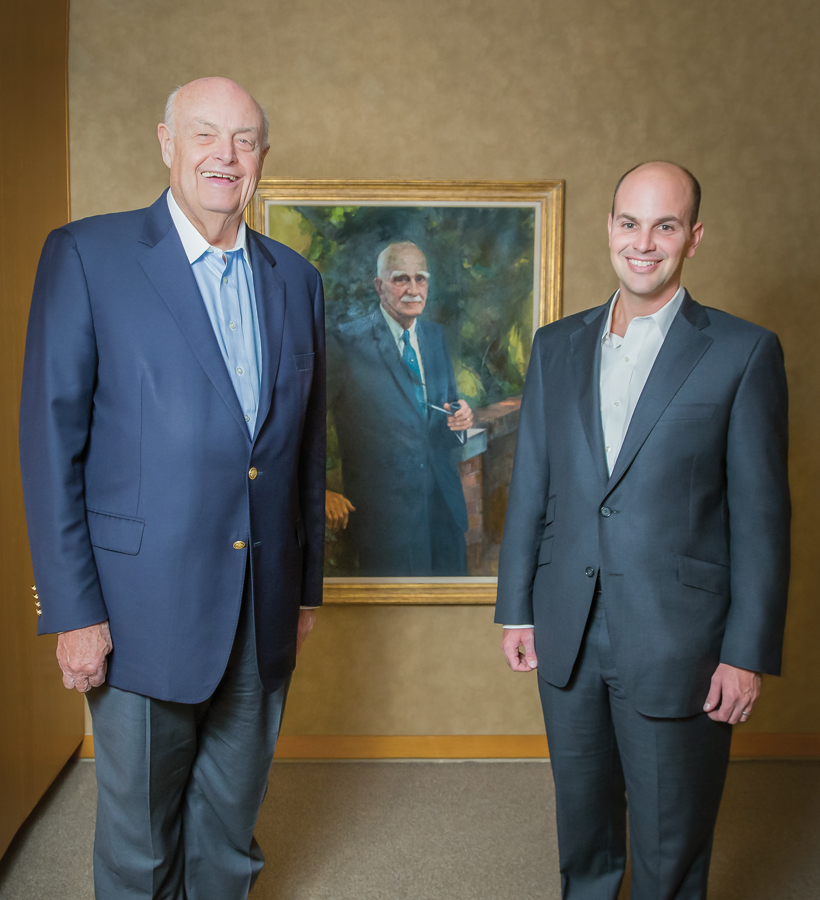 Under White’s leadership, the Mott Foundation grew from a primarily local funder with assets of roughly $377 million to an internationally recognized philanthropy with assets of more than $3 billion.
Under White’s leadership, the Mott Foundation grew from a primarily local funder with assets of roughly $377 million to an internationally recognized philanthropy with assets of more than $3 billion.
As a grantmaker, White built a reputation for seeking out solid, well-managed organizations and funding them to create infrastructure and sustainability in key sectors. He recognized that the stubbornness and complexity of the issues we seek to address means that they will not be resolved overnight. He often said that having patience and taking a “long view” are essential for meaningful, sustainable change to take root. And he embraced Charles Stewart Mott’s belief that good things happen when people work in partnership with their communities.
The possibility of failure never prevented White from taking calculated risks, and many paid off – none more than his offer of $5 million to seed and support the federal government’s 21st Century Community Learning Centers initiative. Mott’s support helped build the fledgling, bipartisan effort to keep children safe after school into a highly regarded national program that now provides high-quality enrichment and academic programming for 1.7 million children each year.
White was known as an institution builder, both internationally and domestically. The governance of organizations was of great importance to him, especially in the charitable sector. He supported good practice and transparency in philanthropy, and he believed foundations must be accountable for the assets they have at their disposal and responsible for using them for purposes intended by the donor.
The recipient of many honors, perhaps none more gratifying to him than the Council on Foundation’s Distinguished Grantmaker Award in 2002, White also received The European Foundation Centre’s first-ever Philanthropy Compass Prize in 2009; the Beacon Award for Services to Community Philanthropy from the Community Foundation Network in the U.K. in 2010; and the Republic of Poland’s Officer’s Cross of Merit award for his contributions to the development of civil society in Central and Eastern Europe.
He served on many local, national and international boards throughout his long career, but most enjoyed the opportunity to observe world conditions first-hand, as he did through his appointment to the Carter Center’s observer delegation to the Palestinian elections, on the U.S. Presidential Delegation led by former Ambassador Richard Holbrooke to observe the elections in Bosnia, and on a Presidential Economic and Business Development Mission to Croatia and Bosnia.
Outside his philanthropic responsibilities, White also served for many years as the chairman of the board of the U.S. Sugar Corporation. He was a member of the governing council of The European Foundation Centre and was the recipient of five honorary degrees. A generous supporter of the arts, he and his wife Claire were recognized by ArtServe Michigan with the Guvvy Award – the Michigan Governor’s Award – for lifetime achievement in advancing and supporting arts and culture in the Flint area. A deeply spiritual man, he was a member of and served three years as Reader at the First Church of Christ, Scientist, Flint.
White was preceded in death by his wife Claire and his son-in-law, Robert E. Lovett, Jr. He is survived by his second wife, Louise Hartwell; daughter Tiffany White Lovett; son Ridgway White (Shannon Easter White); stepdaughter Kathryn Pickett Davis (Andrew Davis); four grandchildren; and three step-grandchildren.
While the trustees and staff of the Charles Stewart Mott Foundation are deeply saddened by Bill White’s passing, we will be forever grateful that we had the opportunity to benefit from his wisdom, wit and counsel for so many decades.
Read some of the milestones and achievements of William S. White’s philanthropic career – one that was remarkable for both its longevity and impact.
1969 – Hired as a consultant, White subsequently helped to bring the Mott Foundation into compliance with the Tax Reform Act of 1969. The results: more efficient grantmaking, a clearer emphasis on accountability and transparency – including publication of the Foundation’s first annual report in 1971 – and a long-term focus on building a global infrastructure in the field of philanthropy.
1971 – Named vice president and secretary of the Mott Foundation and elected to its board of trustees.
1972 – Alongside C.S. Harding Mott, guided the Foundation’s support for relocating the University of Michigan‐Flint from the campus of Mott Community College to downtown Flint. The decision intensified the Foundation’s emphasis on higher education and economic revitalization as key parts of its hometown grantmaking.
Worked with other philanthropic leaders to launch the Council of Michigan Foundations (CMF), a nonprofit association of grantmaking organizations working to grow the sector’s impact in the state. Joined CMF’s board of trustees in 1975, later serving as chairman and holding positions on the council’s steering committee and advisory cabinet.
1975 – Building on the Foundation’s longstanding support for community education in Flint and elsewhere in the United States, championed the creation of a community education training center in La Paz, Bolivia. This sparked a new era in Mott grantmaking that introduced and promoted lifelong learning to communities around the world.
1976 – Became Mott Foundation president and chief administrative officer.
1978 – Championed Mott’s support for Historically Black Colleges and Universities (HBCUs) in the U.S. That funding recognized HBCUs as vital to the education of historically underserved people, as well as to the preparation of black leaders nationally and globally. Through 2010, the Foundation contributed more than $41.6 million in support of HBCUs.
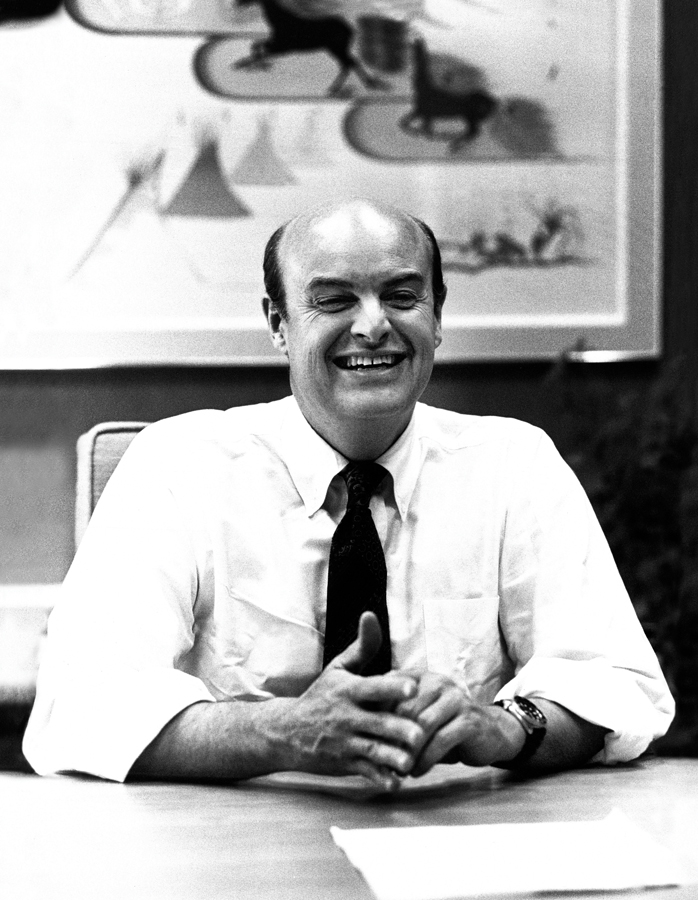 1979 – Named Mott Foundation CEO.
1979 – Named Mott Foundation CEO.
Launched Mott’s grantmaking to help spur the growth – domestically and, eventually, internationally – of community foundations. That support, which totaled more than $199 million through 2018, has helped expand the field from fewer than 300 community foundations in 1979 to more than 1,800 around the world today.
Joined other philanthropic partners in providing initial capital support for the newly launched Local Initiatives Support Corporation (LISC). Created by the Ford Foundation, this nonprofit financial institution has since helped under-resourced communities in all 50 states attract investments in such key areas as education, housing and employment. Since 1988, LISC’s efforts in Flint have been supported, in part, by Mott.
Led Mott’s partnership with the Council on Foundations (COF) – a nonprofit leadership association of grantmaking institutions in the U.S. – in launching a technical assistance program for the nation’s community foundations. Joined COF’s board of directors in 1985 and went on to serve with various council committees and initiatives.
Introduced Mott’s first environmental grantmaking plan, which focused largely on toxic substances, protecting the Great Lakes and improving community resource management.
Appointed by U.S. President Ronald Reagan to a task force charged with exploring ways to engage the private sector in helping to address public needs.
Joined the board of trustees of GMI Engineering & Management Institute, now known as Kettering University.
1984 – Oversaw the Mott Foundation’s launch of a national Neighborhood Small Grants Program designed to increase community foundations’ interactions with, and support for, resident-led organizations in low-income neighborhoods. Over the next decade, Mott provided more than $5.8 million in support to 20 community foundations, some of which continue that work today.
Named Citizen of the Year by the Flint Area Chamber of Commerce, now the Flint & Genesee Chamber of Commerce. Received the award again in 2008.
1985 – Led Mott’s adoption of the Sullivan Principles, which aimed to help bring an end to apartheid in South Africa. Three years later, oversaw the Foundation’s first grants in response to that crisis, a decision that fueled future efforts to promote social and political progress internationally.
Championed the exploration by Mott staff of microenterprise as a pathway out of poverty. Over the next three decades, the Foundation’s support for the strategy, which totaled more than $56 million, fueled a nationwide movement to help low-income entrepreneurs start their own businesses and move up the economic ladder.
1986 – Approved Mott Foundation funding for a program in East Harlem, New York, that provided low-income young people the opportunity to launch a career in construction while revitalizing their neighborhoods. Today, thanks in part to $14.2 million in Mott support through 2017, YouthBuild programs are improving lives and communities in 46 states across the U.S., and in 20 countries around the world.
1987 – Introduced Mott’s Environment Program, which seeks to support stewardship of the world’s natural resources. Today, that grantmaking helps to protect the Great Lakes and other freshwater resources, promote global sustainability by supporting efforts to reform international development finance and increase the use of renewable energy in developing countries.
1988 – Became chairman of the Mott Foundation’s board of trustees.
Led Mott’s partnership with the Charities Aid Foundation to create a technical assistance program that helped foster the growth and development of community foundations in the U.K.
Helped to facilitate the hometown merger of two local philanthropies ‐Flint Public Trust and Flint Area Health Foundation ‐to create the Community Foundation of Greater Flint. Over the next 30 years, that institution made grants totaling more than $100 million in support of residents in Flint and Genesee County.
Directed the Mott Foundation’s support for the creation in Flint of Mott Middle College (MMC), the nation’s first high school to allow students from multiple districts to take college courses for college credits. The Foundation subsequently has supported MMC’s efforts to replicate the model in school districts across Michigan and the country.
1989 – Led Mott Foundation trustees and staff on a visit to explore grantmaking opportunities in the Soviet Union, sparking more than two decades of support for initiatives in community philanthropy, community education and civil society leadership in Russia. While Mott decided to halt our grantmaking to organizations in Russia in 2015, the impact of our earlier grantmaking there endures today.
1991 – Partnered with the German Marshall Fund of the United States, the Rockefeller Brothers Fund and others to launch the Environmental Partnership for Central Europe. This led to long-term collaboration with the German Marshall Fund to support civil society initiatives in Central and Eastern Europe.
1992 – Brought a growing body of insights gleaned from Mott’s work in Central and Eastern Europe, Russia and South Africa to bear on the launch of the Foundation’s Civil Society Program, which seeks to help people create vibrant communities where everyone can engage in decision-making that affects their day-to-day lives. Today, that grantmaking focuses on strengthening the space for civic engagement, enhancing local philanthropy and increasing access to justice.
1993 – After hearing Nelson Mandela speak about the importance of – and challenges facing – South Africa’s first post-apartheid election, stepped forward to help generate support for voter education and participation activities in that country, and led a visit by a delegation of Mott trustees in advance of the 1994 elections.
Guided Mott’s partnership with other funders in creating CIVICUS: World Alliance for Citizen Participation, which promotes international cooperation among foundations and others in the global nonprofit sector. Joined the organization’s board of directors in 1995.
Opened Mott’s first overseas office in Johannesburg, South Africa.
1994 – Led Mott’s support for the launch of the Healthy City Community Foundation in Banska Bystric, Slovakia, the first community foundation in continental Europe. Today there are more than 150 community foundations in 13 countries in the region, and Mott’s related grantmaking totaled $39.5 million through 2018.
Joined the governing council of The European Foundation Centre (EFC), a network of philanthropic institutions from more than 30 countries in Europe and elsewhere around the world. White served on the governing council for 24 years, shedding light on best practices from U.S. philanthropy and helping EFC to draw on diverse perspectives from the foundation community.
1995 – Began funding initiatives aimed at building peace, healing and reconciliation in post-apartheid South Africa and, later, to capture the history of the country’s first Constitutional Court.
Opened an office in Prague to support the Foundation’s work in Central and Eastern Europe. That office was moved to London in 2004.
1996 – Served on a U.S. delegation to observe general elections in Bosnia and Palestine.
Served on a Presidential Economic and Business Development Mission to Bosnia and Croatia during the Clinton administration.
1998 – Brought the Mott Foundation full circle in its long-standing support for community education with a $2 million grant and $55 million multi-year commitment to help seed and support the expansion of the federal government’s 21st Century Community Learning Centers initiative. Mott’s funding helped build the fledgling, bipartisan effort to keep children safe after school into a highly regarded national program that now provides high-quality enrichment and academic programming for 1.7 million children each year.
1999 – Partnered with other funders to create the Worldwide Initiative for Grantmaker Support (WINGS), an international network of philanthropic associations and support organizations.
2000 – Worked alongside other philanthropic leaders to create the Trust for Civil Society in Central and Eastern Europe, followed in 2003 by the Balkan Trust for Democracy and in 2007 by the Black Sea Trust for Regional Cooperation. Each contributed to a model of collaborative funding that has leveraged public and private resources, both locally and internationally, for building democracy and civil society in Central and Eastern Europe.
2001 – Piloted Mott’s support for the protection of ecologically significant properties in Michigan’s Upper and Lower peninsulas. More than $25 million in grants over the next six years led to the safeguarding of more than 360,000 acres of land in the Great Lakes basin, 14 miles of shoreline and the Humbug Marsh, a cornerstone of the Detroit River International Wildlife Refuge.
Accepted an EastWest Institute (EWI) Peace Building Award for Mott’s role in the creation of The Carpathian Foundation in 1994. This unique, cross-border initiative aims to help nonprofit organizations and local governments improve the quality of life in Hungary, Poland, Romania, Slovakia and Ukraine. EWI recognized Mott as one of the most innovative private funders working in Central and Eastern Europe.
In response to the 9/11 terrorist attacks in the U.S., directed Mott’s grantmaking efforts to help communities, schools and businesses recover from the catastrophic event.
2002 – Introduced the Mott Foundation’s support for the creation of statewide partnerships designed to build public support for quality after-school programs. Today, a national infrastructure with networks in all 50 states is working to develop, support and sustain after-school and summer learning opportunities for all children, youth and families.
Directed Mott’s support for the launch of the Genesee County Land Bank Authority, an innovative approach to transforming tax-foreclosed and abandoned properties into community assets. The success of that approach earned the Land Bank the Innovations in American Government Award in 2007 from Harvard University and today, the program serves as a national model for land use reform.
Honored with the Distinguished Citizen of the Year Award from the Tall Pine Council, Boy Scouts of America.
Received the Council on Foundation’s Distinguished Grantmaker Award, which recognizes lifetime achievement in philanthropy.
2003 – Awarded the Order of Merit of the Republic of Hungary, Knight’s Cross, in recognition of distinguished service in the development of civil society in Hungary.
Honored with the Nelson Mandela Children’s Fund Legacy Award.
2004 – Joined a working group of nonprofit leaders charged with identifying ways to strengthen governance, transparency and ethical standards within the sector. Over the next three years, the Panel on the Nonprofit Sector developed 33 principles to help guide the nation’s charities and foundations, and it also provided the U.S. Congress and Internal Revenue Service with more than 150 recommendations for improving the regulatory framework under which the nonprofit community operates.
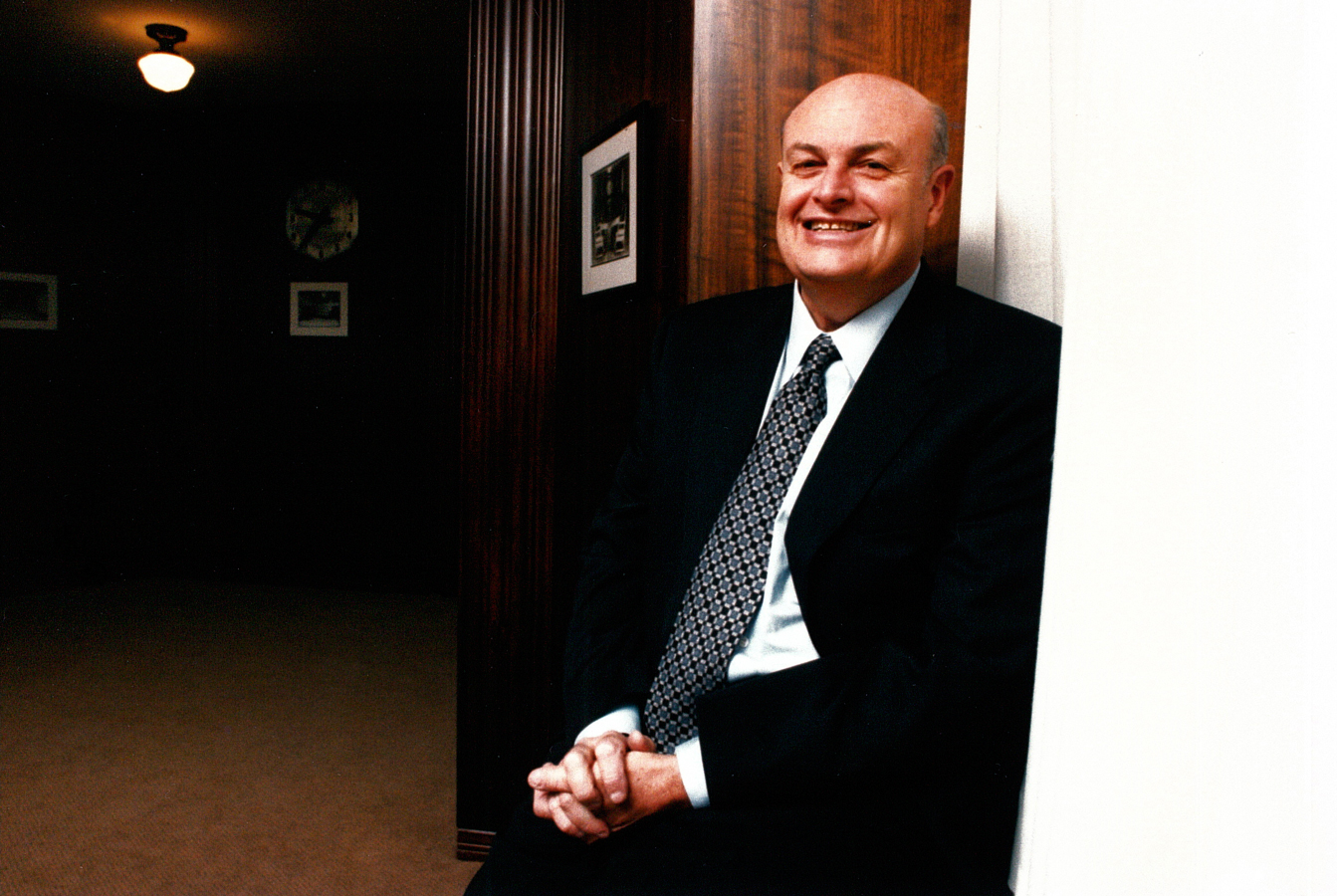 2005 – Following Hurricane Katrina, directed Mott’s grantmaking response in support of New Orleans and other communities along the Gulf of Mexico.
2005 – Following Hurricane Katrina, directed Mott’s grantmaking response in support of New Orleans and other communities along the Gulf of Mexico.
Made the Mott Foundation’s largest single grant to date, $25 million, to the University of Michigan Health System for construction of a new C.S. Mott Children’s Hospital in Ann Arbor. Today, the hospital is one of the nation’s premier health care institutions for women and children.
Honored by the U.S. Department of Education with the first William S. White Lifetime Achievement Award, which recognized support of children, families and their communities. White was recognized for the innovative private/public partnership between the Mott Foundation and the Department to expand the availability of after-school programs in low-income communities across the U.S.
Recognized by The Carpathian Foundation as an outstanding world leader dedicated to civic leadership, community development and global corporate social responsibility.
Received the Flint Jewish Federation’s Donald Riegle Community Service Award, which recognizes individuals who demonstrate dedication and service to the Flint community.
2006 – Led Mott’s partnership with other funders to create the Global Fund for Community Foundations, which seeks to promote and support institutions of community philanthropy around the world.
2007 – Brought Mott to the table alongside nine other foundations to launch a joint initiative designed to speed the transition of Metro Detroit to an innovation-based economy. With the help of $4.4 million in Mott support through 2018, the New Economy Initiative is growing a vibrant culture of entrepreneurship and economic opportunity in the Motor City.
Recognized, along with wife Claire White, by ArtServe Michigan with the Guvvy Award – the Michigan Governor’s Award – for lifetime achievement in advancing and supporting arts and culture in the Flint area.
2009 – Honored with The European Foundation Centre’s
first Philanthropy Compass Prize for contributions to
the development of the Centre and the philanthropic
sector in Europe.
2010 – Received the first Beacon Award for Services to United Kingdom Community Philanthropy, a special honor presented by the Community Foundation Network in the U.K.
2012 – Awarded the Republic of Poland’s Officer’s Cross of Merit for contributions to the development of civil society in Central and Eastern Europe.
Honored by the Alliance of Community Foundations of Germany for contributions to the expansion of community philanthropy in that country.
Received the Arab American Heritage Council’s Community Leadership Award in recognition of “steady, insightful, and creative investment in the Flint Area.”
2014 – Piloted Mott’s support for the launch of a “reimagined” model of community education in the Flint Community Schools. Between 2014 and 2018, the Foundation provided nearly $27.9 million in funding for the new model, which is in place in every school in the district and is helping to support healthier families, stronger neighborhoods and higher-achieving students.
Collaborated with fellow leaders from the public and private sectors in crafting a chain of agreements known as the Grand Bargain, which helped Detroit emerge from bankruptcy in just 16 months. This work supported Detroit and its citizens in efforts to revitalize the city, prevented the Detroit Institute of Art’s priceless collections from being sold and helped Detroit honor its commitments to retirees.
Partnered with Michigan State University to expand that school’s College of Human Medicine to a new campus in downtown Flint. In addition to educators and students, the expanded program is home to public health researchers, each working to help identify and address public health concerns in the Flint community.
Honored by the Council on Foundations for Mott’s commitment to the field of community philanthropy.
2015 – In response to the water crisis in Flint, approved a $4 million grant, proposed by Mott’s newly appointed president, Ridgway White, to help the city reconnect to the Detroit water system. That funding helped to begin the process of bringing safe, clean water back to the community.
2016 – Received the first Outsized Impact Award, presented by Exponent Philanthropy in recognition of far-reaching contributions and service in the field of philanthropy in the U.S.
Reprinted with permission from The C.S. Mott Foundation.
In 2007, Bill and his wife, Claire received the Michigan Governor’s Award for lifetime achievement in advancing and supporting Flint area arts and culture. Above, Mr. White presents the FIM with a substantial endowment in the name of outgoing President, Paul Torre.
“As a result of Bill’s leadership, FIM benefited in so many ways, as did countless other people and organizations. He made many people’s dreams come true, and many of mine. He was a dear friend and I always felt lucky to know him. His passing saddens me.”
Paul Torre
President/CEO, Flint Institute of Music 1995-2016
My Dad – William S. White
Compiled by Peter Hinterman
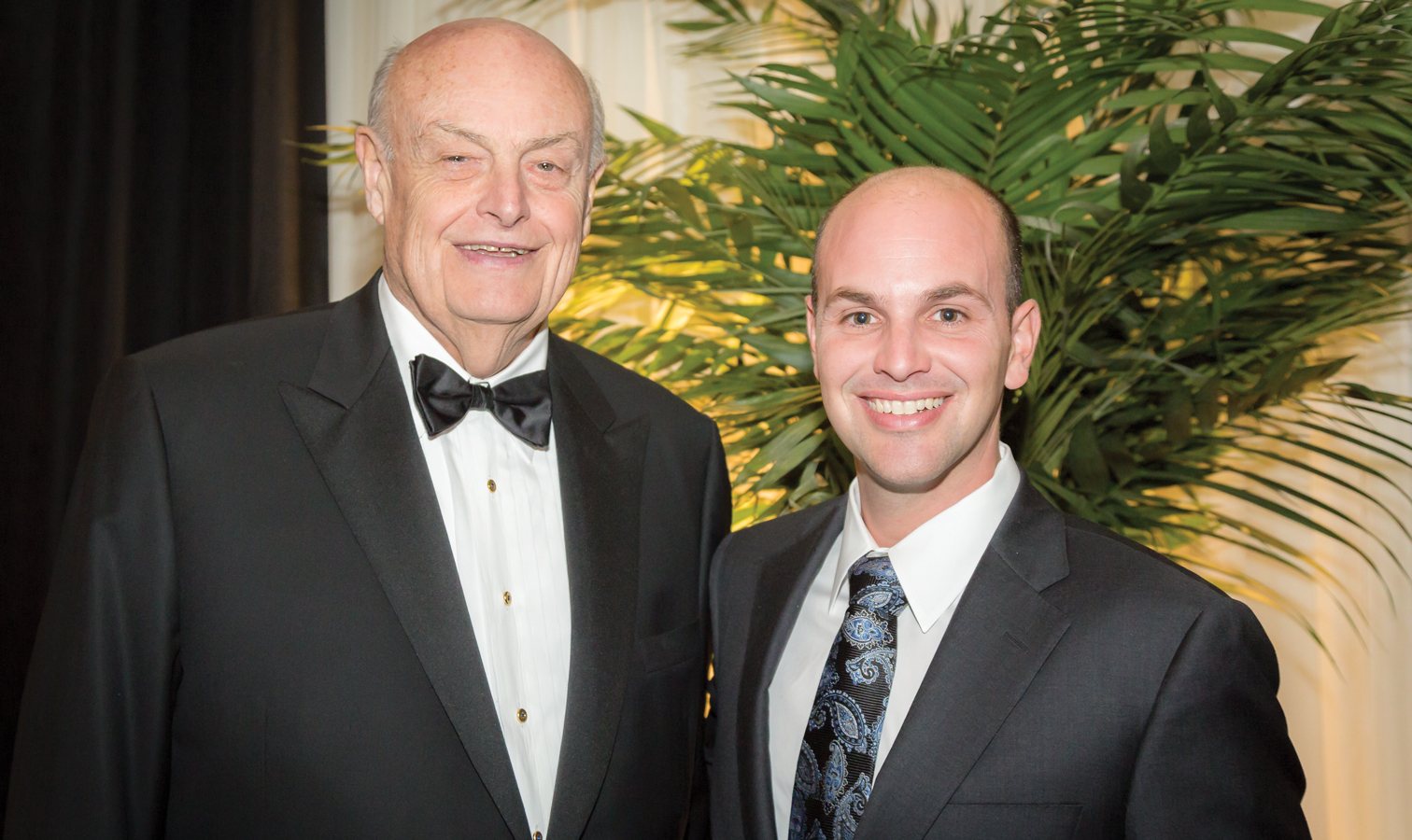
Following the untimely passing of William S. White, My City spoke with his son Ridgway White, President and CEO of the Charles Stewart Mott Foundation. Below, he shares some thoughts about his father.
What did the City of Flint mean to your father?
Flint was my father’s adopted home, as it was for C.S. Mott. One thing that he told me before he passed was that Flint holds a much higher quality of life than many people believe. He recently purchased an apartment in New York City and told me that because of our culture and the Cultural Center, the greenspace that we have and our ability to be human beings here, Flint is more genuine – the people here are more genuine – than even a city like New York.
What impressed you most about him? And why?
Dad had a grit about him – a sort of steadfast resolve. When there was a problem that needed to be addressed, he really took the time to think about it. He examined it from all angles and when Dad made a decision, he stuck to it no matter what he was up against. That really impressed me about him.
What is the greatest lesson he taught you growing up?
More than anything, he taught me the art of discovery. We spent a lot of time together building things when I was growing up, such as benches or RC cars. We took things apart to see how they worked and it taught me to dissect every problem into its individual components. Dad made me want to learn how everything fit together.
What is something people might not know about your father?
Most people don’t know what a good swimmer he was! He swam in college for Dartmouth and whenever he got the chance, he continued to swim miles at a time. When our family spent time at our Torch Lake cottage, it was common for Dad to head out into the water for a swim and we would pick him up later, down the lake two miles or so.
How do you hope to honor his memory?
My father cared deeply about the community and its future. More than a name and a building, I think the best way for me and for Flint to honor his memory is to use whatever benefits he provided in the best possible way, and to continue to connect in our community. My father always put community and cause over self and I think to emulate that mindset would be the best way to honor his memory and legacy.
Just two days before his passing, the Council of Michigan Foundations celebrated Bill White’s five decades of philanthropic leadership at its annual conference, during which he delivered an impassioned speech.
The event included a video tribute, which featured the following quotes from his peers.
“Bill’s leadership is hallmarked by his vision and willingness to take risks, explore new ideas and over time, to give responsibility to others to build on that vision and make it become a reality.”
Maryanne Mott
Trustee, C.S. Mott Foundation
Board Chair, Ruth Mott Foundation
“This is not a person who’s been an ‘ivory tower’ leader, but has been a leader who has been on the ground working and he has never expected more from anybody else than what he was able to give.”
Bill Piper
Trustee, C.S. Mott Foundation
“Bill is a great questioner – he’ll listen to a presentation and then, he’ll let loose with that one core question and you’ll think, ‘Oh. Why didn’t I think of that?’ He has had an amazing impact on the development of community philanthropy across the globe and we’re all so much better for it.”
Rob Collier
Recently “Graduated” President, Council of Michigan Foundations
“I think Bill’s greatest contribution to philanthropy has been his staying power and his loyalty to the work, his commitment to philanthropy in general. It never became about Bill White, his work in philanthropy was never about Mott – it was about how to move the field.”
David Egner
President & CEO, Ralph C. Wilson, Jr. Foundation
“I always looked forward to dealing with Bill, partly because he saw the big picture and there was generosity in his style and spirit and enthusiasm that made it an absolute pleasure to work with him.”
Albie Sachs
Former Justice, Constitutional Court of South Africa
“There are so many ways that Bill’s vision and leadership have benefitted people in Michigan – I could go on for hours – starting with Flint, his beloved Flint.”
Senator Debbie Stabenow
“He took C.S. Mott’s and Frank Manley’s vision for community education, and rolled it out across the country through Afterschool, which reaches 10 million children every day.”
Ridgway White
President and CEO, C.S. Mott Foundation
“Thank you, Bill, for your service, for your friendship, thanks for your humanity.”
Vartan Gregorian
President, Carnegie Corporation of New York
“He was persistent in supporting afterschool programs all across America and was persistent in seeing it through – good days and bad days – and I think that’s made a big difference in that movement.”
Dick Riley
Former Secretary, U.S. Department of Education
“I think we all owe leaders like Bill White our real appreciation and thanks, and I don’t think we say ‘thanks’ enough – so, Bill, my thanks.”
Mariam Noland
President, Community Foundation for Southeast Michigan
“I am enormously grateful to Bill. We would not have been able to bring that bankruptcy to such a positive resolution without his unique form of leadership.”
Darren Walker
President, Ford Foundation
“Bill did what foundation presidents don’t often do. He came to East Harlem. He came to Roxbury. He sat down with the students and the staff – he listened, he learned and he said, ‘Yes! This is consistent with our values of empowering local communities to rebuild their lives and their communities and to be empowered to make a better world.’”
Dorothy Stoneman
Founder, YouthBuild USA, Inc.
“Through Bill’s leadership and his vision, the C.S. Mott Nature Preserve at Arcadia Dunes is a gift that remains a legacy for all of the people of Michigan.”
Maureen Smyth
Retired Senior Vice President, C.S. Mott Foundation
“He served on the board of the Council of Michigan Foundations and was board chair from 1978 until 1981. He motivated our staff, he motivated the board, he motivated our members.”
Dottie Johnson
President Emeritus, Council of Michigan Foundations
“First of all, I hope you have time to relax and enjoy life – you have given a lot. But I also hope that you continue to weigh in on the big questions that we face, both in Flint and around the country. Your leadership has been really significant.”
U.S. Representative, Dan Kildee
“Bill, for so many years, has been the senior statesman, so critical to the field. His counsel has been very important before Congress and the Executive Branch, to his colleagues, and to both the proponents and even the critics of philanthropy.”
Joe Kochanek
Member, Bodman PLC
“You can have the greatest ideas in the world of what we can do for the kids and how we need to work with the kids and help them, but if you don’t have the money, you have nothing. Bill White has been a generous person and a great, great leader, that has contributed a lot to after-school programs.”
Arnold Schwarzenegger
Founder & Honorary Chair, After-School All Stars
“Bill, it’s great to see you getting some of the acknowledgment and praise that is so well deserved for all the great years of service you’ve given not only the Mott Foundation, but the State of Michigan and the country. Congratulations.”
Dave Camp
Former U.S. Congressman

